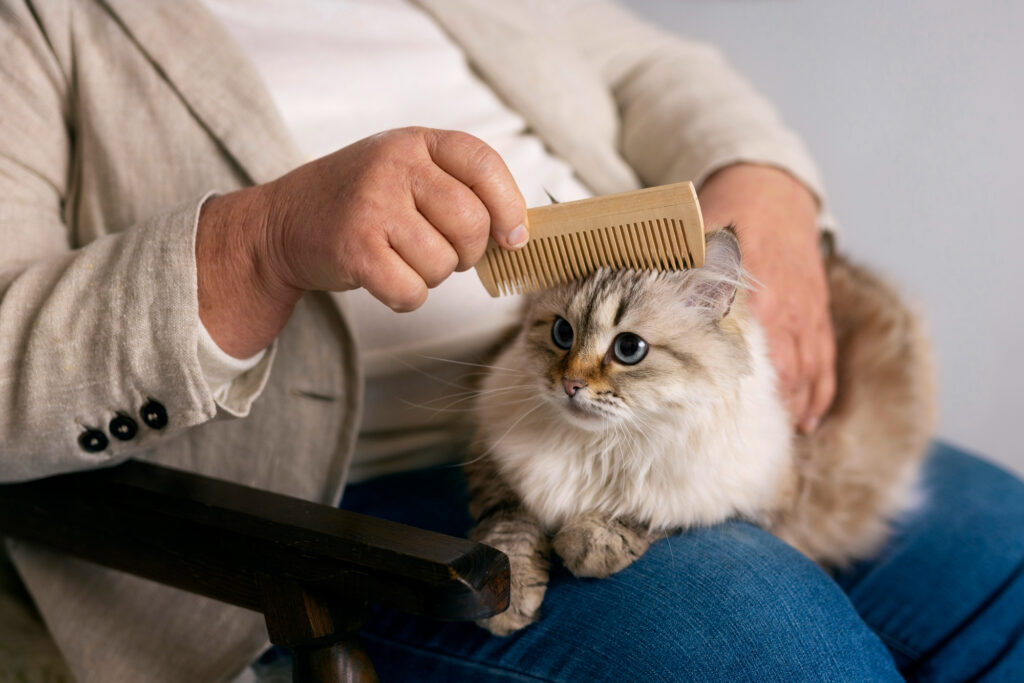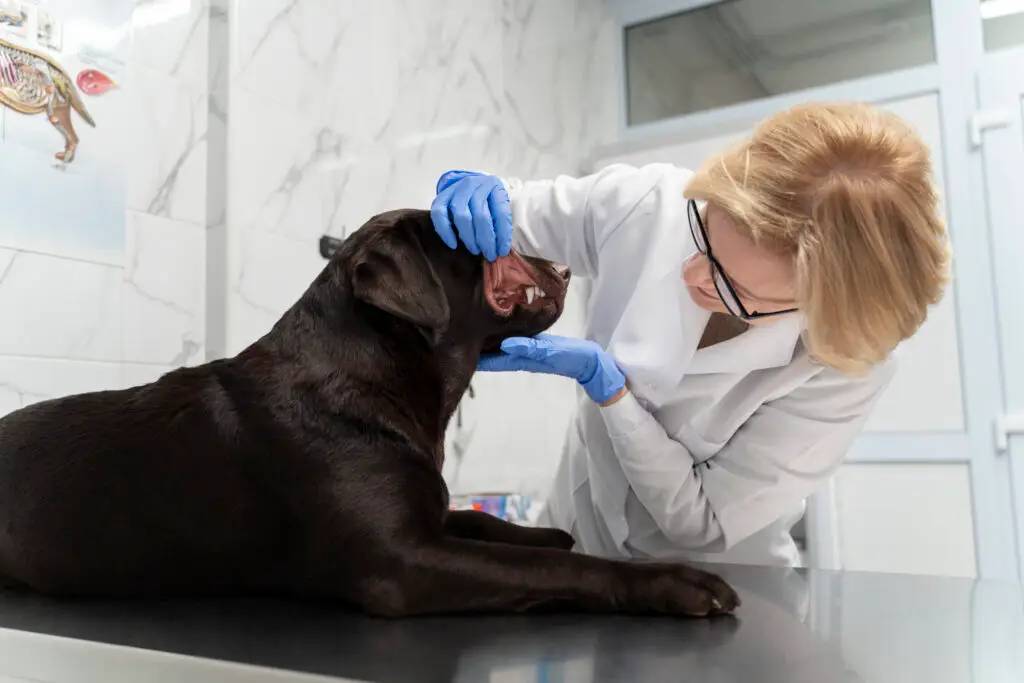Page Contents
1. Introduction
Cat, renowned for her sleek and glossy fur, may occasionally encounter hair loss, a concern that can unsettle their owners. It is imperative to grasp the causes, symptoms, and treatment options for hair loss in cats to uphold the health and well-being of your feline companion.
Hair loss in cats, medically termed alopecia, can occur due to various factors, ranging from genetics to underlying health issues. While some shedding is normal for cats, excessive or patchy hair loss may indicate an underlying problem that needs attention.
2. Causes of Cat Hair Loss
If your furry friend is experiencing hair loss, it’s important to investigate the underlying causes. In this blog post, we will discuss six common causes of hair loss in cats.
- Genetics: Certain cat breeds are predisposed to specific skin conditions or patterns of hair loss due to their genetic makeup.
- Allergies: Cats can develop allergies to certain foods, environmental factors, or grooming products, leading to skin irritation and subsequent hair loss.
- Parasites: Infestations of fleas, mites, or other parasites can irritate a cat’s skin, resulting in scratching, biting, and hair loss.
- Ringworm Infections: Bacterial or fungal infections of the skin can cause hair loss in affected areas.
- Stress: Stressful events such as moving to a new home, changes in routine, or conflicts with other pets can trigger hair loss in cats.
- Hormonal imbalances: Imbalances in hormone levels, such as those seen with thyroid disorders or adrenal gland problems, can lead to hair loss in cats.
3. Symptoms of Cat Hair Loss
Symptoms of hair loss in cats may include:
- Patchy hair loss: Areas of fur may be missing or thinning, leaving bald patches on the cat’s body.
- Excessive shedding: Cats may shed more than usual, leading to a noticeable decrease in fur density.
- Presence of red spots or scabs: Skin irritation or infection may manifest as redness, swelling, or scabbing in affected areas.

4. Treatment Options for Cat Hair Loss
Treatment for cat hair loss depends on the underlying cause and may include:
- Topical treatments: Medicated shampoos, ointments, or sprays may be prescribed to address skin conditions or infections.
- Dietary changes: Switching to a high-quality cat food or incorporating supplements rich in essential nutrients can promote skin and coat health.
- Medications: Anti-inflammatory drugs, antihistamines, or antibiotics may be prescribed to manage allergies, inflammation, or infections.
- Supplements: Omega-3 fatty acids, biotin, and other supplements can support healthy skin and coat growth.
5. Home Remedies for Cat Hair Loss
In addition to veterinary care, some home remedies may help alleviate cat hair loss, including:
- Regular grooming: Brushing your cat’s fur regularly can remove loose hair, distribute natural oils, and stimulate hair growth.
- Proper nutrition: Providing a balanced diet with essential nutrients, vitamins, and minerals can support overall health and coat condition.
- Stress reduction: Creating a calm and enriched environment for your cats, with plenty of toys, hiding spots, and attention, can help reduce stress and prevent hair loss.
6. Prevention Tips
To prevent hair loss in cats, consider the following preventive measures:
- Regular vet check-ups: Schedule routine visits to your veterinarian to detect and address any underlying health issues early on.
- Flea and parasite control: Use preventive measures such as flea collars, spot-on treatments, or oral medications to protect your cat from parasites.
- Stress management: Minimize stressful situations and provide a stable and nurturing environment for your cat to thrive.
7. Conclusion
Hair loss in cats can be a distressing issue for both cats and their owners, but with proper understanding and care, it can often be managed effectively, by identifying the underlying cause and implementing appropriate treatment and prevention strategies, you can help your cat maintain a healthy and lustrous coat.
Frequently Asked Questions (FAQs)
1. What diseases cause hair loss cats?
- Various diseases can lead to hair loss in cats. These include parasitic infections, allergic reactions, hormonal imbalances, and skin conditions such as dermatitis.
2. Can Clavamox make my cat hair loss?
- Clavamox, an antibiotic for bacterial infections, may rarely cause side effects like allergic reactions, potentially leading to hair loss. Consult your vet if concerned.
3. Cat has hair loss on tail.
- Hair loss on a cat’s tail may stem from flea infestation, allergies, over-grooming, or skin infections. A vet visit can identify the cause and appropriate treatment.
4. What causes hair loss in cats?
- Hair loss in cats can result from a range of factors, including parasites, allergies, infections, hormonal imbalances, and nutritional deficiencies.
5. Can fleas cause hair loss on cats?
- Yes, fleas can lead to hair loss in cats due to allergic reactions, excessive grooming, and, rarely, anemia from severe infestation.
6. Can tapeworms in cats cause hair loss?
- Tapeworms typically don’t cause hair loss directly but may prompt excessive grooming, contributing to hair loss. Proper treatment addresses tapeworms and any underlying flea issues.
7. What causes a cat to lose hair?
- Cats may lose hair due to parasites, allergies, infections, hormonal imbalances, nutritional deficiencies, or stress.
8. What causes cat hair loss?
- Hair loss in cats can result from parasites, allergies, infections, hormonal imbalances, nutritional deficiencies, or stressors.
9. What can I give my cat for hair loss?
- The treatment varies depending on the cause. Therefore, it’s crucial to consult your vet for proper diagnosis and recommendations. This may involve dietary changes, supplements, or medication.
10. Can a cat collar cause hair loss?
- Yes, tight collars can rub and irritate the skin, leading to hair loss. Ensure collars fit properly and aren’t too tight.
11. Can Bravecto cause hair loss in cats?
- Bravecto, a flea and tick treatment, rarely causes skin reactions, including hair loss. Monitor your cat and consult your vet if concerned.
12. Can cat allergies cause hair loss?
- Yes, allergies in cats can prompt skin irritation and hair loss. Identifying and managing allergens is key.
13. Can cat allergies cause hair loss in humans?
- No, cat’s allergies in humans typically cause respiratory symptoms, not hair loss.
14. Why is my cat having hair loss?
- Various factors like parasites, allergies, infections, or stress could be causing your cat’s hair loss. A vet can diagnose and recommend treatment.
15. What causes a cat to scratch and lose hair?
- Cats may scratch and lose hair due to flea infestations, allergies, infections, hormonal imbalances, or skin conditions.
16. How to treat cat hair loss at home?
- Regular grooming, hypoallergenic shampoos, balanced diet, and a stress-free environment can aid in managing hair loss. Consult your vet for specific guidance.
17. How to stop cat hair loss?
- Addressing the underlying cause is crucial. Work with your vet to identify triggers and implement appropriate treatment.
18. How to prevent cat hair loss?
- Maintaining a healthy lifestyle, addressing parasite control, providing proper nutrition, and minimizing stressors can help prevent hair loss in cats. Regular vet check-ups are essential for early detection and management.


